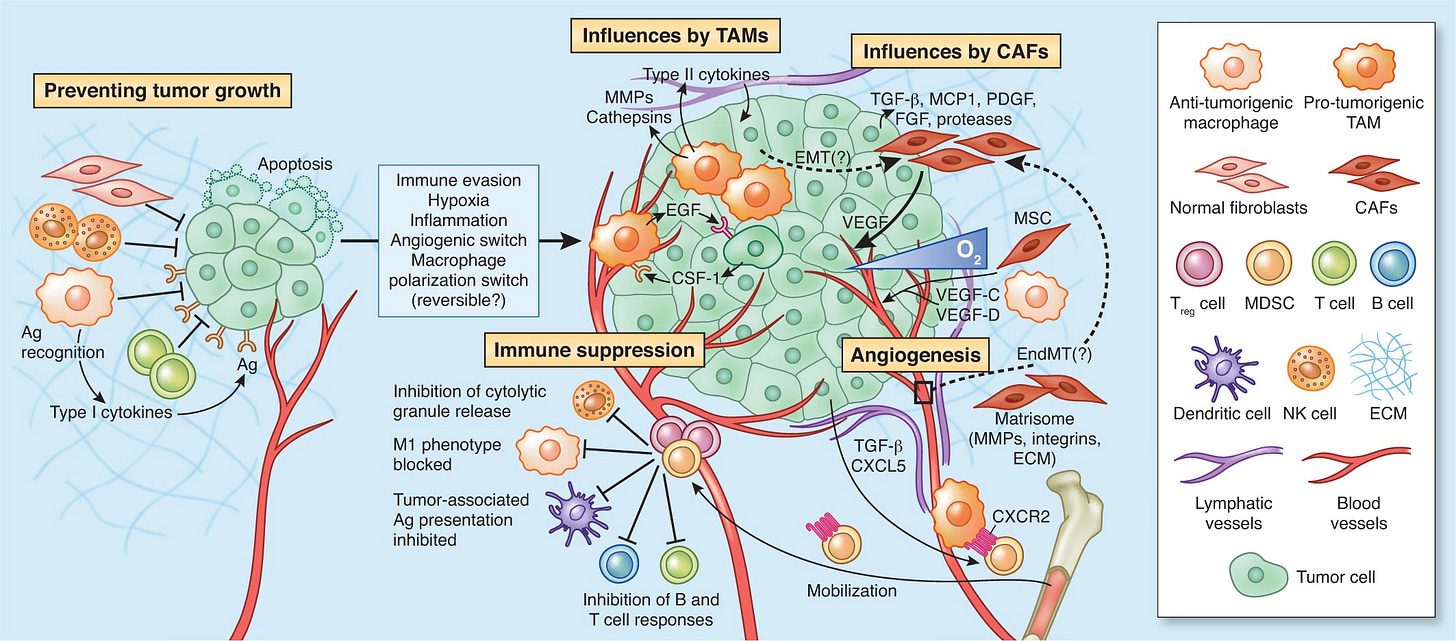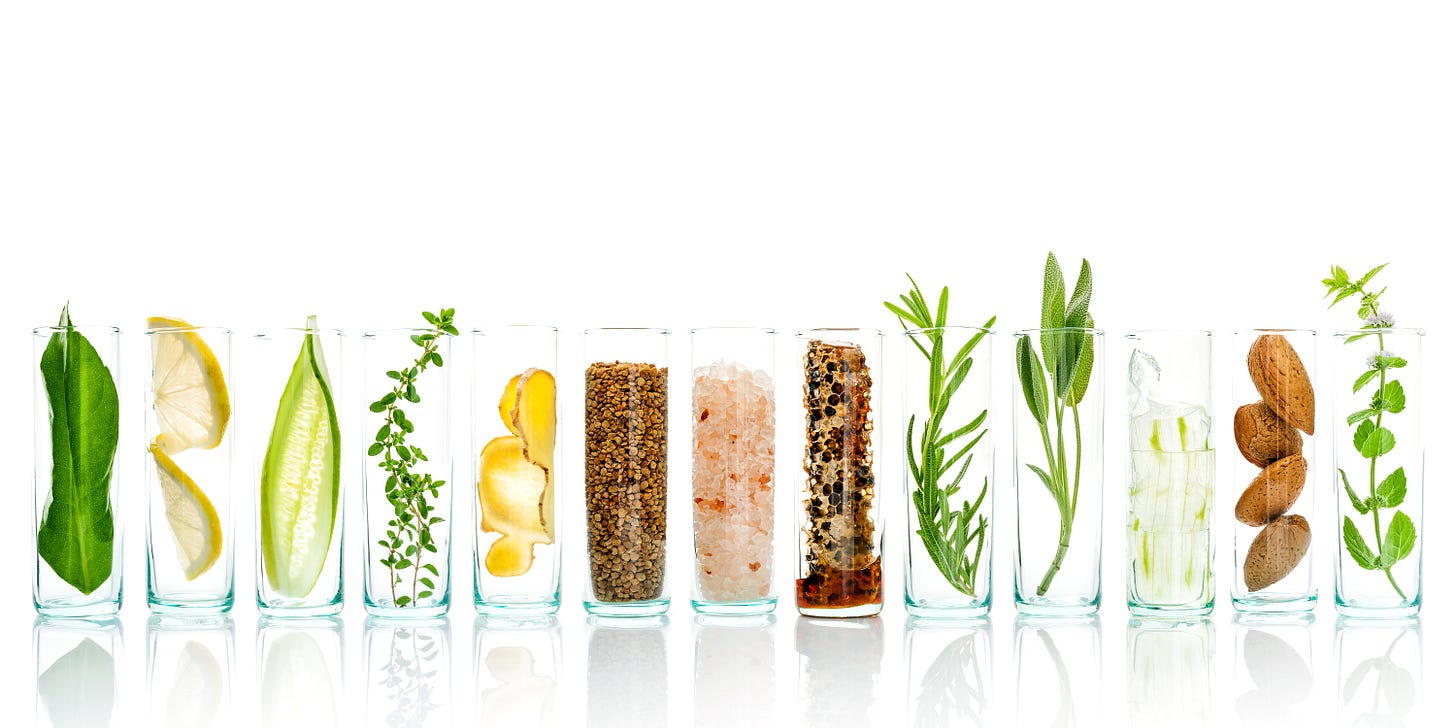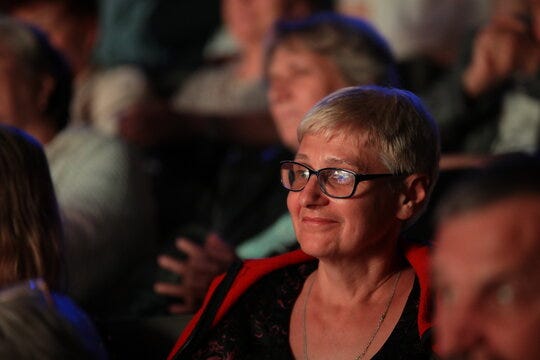It's Not You. It's Them.
The complexity of cancer is difficult to explain. As the patient, you shouldn't have to.
The story usually goes something like this:
I announced on Facebook that I had cancer, and a friend of a friend sent me this article that says *insert cancer conspiracy here*. What do you think about that?
Sometimes it is more brazen:
I was talking to a friend about my husband’s cancer diagnosis at a Christmas program last night. The woman sitting in front of us overheard our conversation. She had just finished cancer treatment. She recommended that he drink aloe juice during his radiation treatments to cleanse the radiation from his body. Is that ok?
Or even more personal:
My sister who lives in Arizona sent me a box of supplements from a naturopath that lives in her neighborhood. Can I take these during radiation? *hands me a box filled with unlabeled plastic bottles containing brown capsules*
In each situation, the (presumably) well-meaning person has sprayed their fear all over an unsuspecting patient. Instead of the support these patients expected, they now have one more opinion to consider.
Instead of love and well-wishes buoying their hearts, they are left with questions. Instead of a head open to evidence-based practices, they are armed with the thoughts of their high-school boyfriend’s wife’s daughter-in-law.
10-20% of my job is talking to patients about the scenarios above. The tipoff is usually a patient who is humming along in treatment and then one day seems withdrawn, distant or scared. Other times it is when patients come in for a first consultation with a defensive posture, as if we are going to force them to take treatment against their will.
These “helpful” suggestions are unhelpful at best. And dangerous at worst.
The truth is we are just beginning to understand the complexity of cancer. “Cancer” is NOT one disease. It’s not even one disease in the rudimentary way we divide it up by organ of origin. Your cancer is made up cells that came from YOUR body which are completely different than the cells in someone else.
The development and spread of cancer cells also require a whole-body effort to amplify the unplanned error in cell division that results in cancer formation. And then steady ignorance that allows those mutant cells to multiply and spread to other parts of the body.
For cancer to form in an organ, for example, a dividing cell must first acquire the ability to grow past a normal stopping point. To achieve unregulated growth.
Some explain this with a car analogy - that the cell must find itself with an accelerator that is constantly on and a brake that doesn’t work.
Then, this abnormal behavior proceeds without raising the suspicion of the multiple mechanisms within the cell and the body that normally prevent this. Maybe an aging immune system is taking a coffee break or fighting a COVID infection rather than monitoring abnormal cell growth in the lung.

Tumor cells then push through the boundaries that naturally constrain them - structures like basement membranes and epithelium. The cells have to be so different from the cells around them that they knock down the walls that keep their fellow, well-behaved cells in line.
As the mutant cells continue to grow and do all of the above, research suggests that other parts of the body start to call for these abnormal cells to come and visit. It’s one of the reasons that prostate cancer cells spread mostly to the bones, for example, while lung cancer cells can spread to the brain. Macrophages (which should be collecting garbage) then come to ESCORT cancer cells to these other organs.
That’s right the garbagemen of our bodies personally accompany these mutants to other parts of our body.

Upon arriving in the new organ, tumor cells must immediately get to work preparing the surrounding organ to support their abnormal lives in this strange land. A normal cell from the lining of the colon CANNOT survive in the liver.
Colon cancer cells, however, are the hardened pilgrims sent to a foreign land. They are the Army Rangers, Navy Seals, hardcore preppers, Lewis and Clark. Or perhaps, more like the Donner party.
These hardened cells are well equipped for this mission; they have the ability to work with the cells in the liver to set up shop and survive. Once again, they must also accomplish this work while avoiding the detection mechanisms of the target organ that is under constant vigilance to protect itself from this very thing.
Does any of this sound like something that drinking aloe-cucumber water will fix?
Your friends and family are not alone when they offer all natural cures.
One psychology experiment asked participants to choose between treating a hypothetical illness using a drug labelled as “natural” versus one labeled “synthetic.” The results: One in five people chose the natural option even after being told that it was less safe than the synthetic version.
The Behavioral Scientist explains human behavior this way:
Our preference for things deemed to be natural is so illogical and systematic that researchers have given it a name—the appeal to nature fallacy. The power of this cognitive bias is so great that the average person is willing to pay a premium on foods and medicines referred to as natural. This has certainly spawned its fair share of shrewd marketing tactics aimed at unsuspecting consumers.
The appeal, especially for people afraid of your cancer, is that there is an answer out there that requires very little sacrifice, that we can heal our body’s mistakes “naturally.” By buying into this way of thinking, we can be led to believe that “natural” = “safe.” Which can be untrue for any number of reasons and CERTAINLY does not mean “natural” = “effective.”
writes this:
The “appeal to nature” fallacy harms public health, science literacy, and technological advancement. It is particularly pervasive, as it connotes a romanticization of past eras, when things seemed simpler. In reality though, “natural” is a meaningless term in the context of chemistry, and one of the strengths of humans as a species is to learn and use the information that we acquire to improve upon things that are natural in order to benefit society and increase the quantity and quality of our lives.
Cancer is complex. And complexity is hard.
Which means the answers to treating it will not be as simple as Uncle Larry’s homemade celery juice.
So, what do you say when someone offers you their unsolicited advice? a too good to be true solution? Hope with an organic twist?
I’ve developed a basic response that balances acknowledgement of the feelings behind the comments while also not forcing you to accept it:
“That’s really interesting. I’ll talk to my doctor about it. Thanks for caring about me.”
Let me know how it works.
On my mind…
Want more?
Is There a Natural Cure for Cancer?
The ridiculous class action lawsuit levied against Taco Bell last week brought back memories of my first job: working the drive-thru window at the Taco Bell in Normal, Illinois. As a new employee, I received training on how to prepare the menu items, instructions on taking an order, and a mandate to ALWAYS try to upsell a combo:










I have seen too many patients delay life-saving care because they pursued the miracle cure from a shaman (this happened to me several times, different shamans) or alternative therapies they read about online.
Treating cancer is often a grisly business but not always! For some cancers, we get to run trials about how to shorten treatment because it is so successful, which is an extraordinary scientific victory and a testament to people wanting what's best for patients (not for Big Pharma).
For other cancers the treatment is indeed mostly brutal.
I wish we had better nomenclature for cancer that made it easier for people to conceptualize it as a myriad of conditions instead of a single monolithic problem. That would restore some nuance to the discourse and maybe reduce some of the grift. My aunt's neighbor's mechanic's cancer magic potion gets a lot less relevant if we get more specific.
Good perspectives about cancer patients who receive unsolicited advice from family, friends, and even strangers. This week, I'm celebrating my second anniversary of successful surgery for Stage IIIc colorectal cancer. I've lost count of the people who told me during my chemo and radiation and two surgeries that I should bail out of the medical treatments and rely on "natural" treatments. One friend (no longer a friend) urged me to "let nature take its course" because I was 78 when I was diagnosed. Bulls**t!! I wanted the best doctors in the city, starting with the medical director of the best hospital in Western Mexico. Now, I'm recovering well enough and my medical team is happy with my progress.